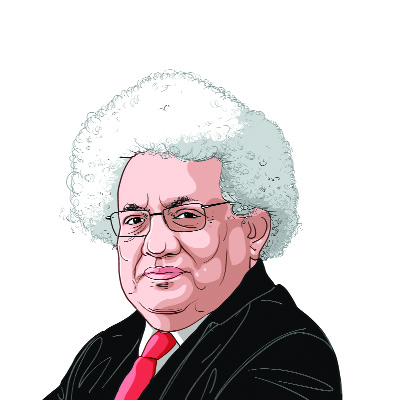Opinion Paying for our yesterdays
The recession has not gone away. The developed world is still bleeding. There has been a turnaround in output,which has stopped falling sharply....
The recession has not gone away. The developed world is still bleeding. There has been a turnaround in output,which has stopped falling sharply. Unemployment is still rising though not as fast as before. Banks are back to making profits but show little signs of returning the large sums of money that has been poured into them.
The IMF and the World Bank are meeting in Istanbul. The mood is sombre. The recession has turned a corner but the economies of the West are nowhere close to where they were in the middle of 2008. There will be sluggish growth for a few years while everyone adjusts their economies to new habits. Americans will need to save more and their government will have to balance its budget. The vast sums spent shoring up the economies have added hugely to the debt-income ratio and this will have to sorted out.
China and India and the rest of Asia have escaped the worst of this recession. They have had a growth slowdown but no serious meltdown. But they too will need to adjust as the developed world slows down. For 15 years everyone lived happily and guiltily on Americas excess consumption and piled exports into the US and then lent the dollars back to Americans. Now,if the Americans sober up,the world will have a hangover. China cannot go on growing as it does,exporting a large share of its output. Like India,it will have to spend more money at home on houses and furniture and cars. India will have to be wary that the big boom in the Sensex will not last forever. At present,loose money has nowhere else to invest itself so it comes to Asia. But once the spring returns to the developed world,the money will shoot out.
If the developed countries take their time returning to normal and paying off the large debts they have incurred,the onus is on the developing countries to fill in the slack. India needs a much more aggressive growth strategy than it is planning now. Double-digit growth is the order of the day while China absorbs more imports from the rest of the world and gives its citizens a better life.
What will happen to Africa,which has just recently seen some decent growth? Indeed,if in 1992 the outflow of private capital to the Third World was $200 billion,in 2007 it was $900 billion. That has to be resumed since it has fallen back to a third of its size. The world,poor and rich,is interdependent on private capital flows and the sooner we can get them flowing again,the better off we are.
There has been no cry for a fundamental rejection or reform of capitalism. The cry is to get it back on its feet as soon as possible and then think of getting it into a better shape. The IMF has abandoned its previous insistence on balanced budgets and wishes the fiscal boost to continue while putting off the problem of paying off the debts. We are Keynesianssort ofand wish the recent past to come back somewhat whitewashed and better looking but not too different from what it was like.
This has meant a real crisis for Socialists. In Europe,they are losing ground. Germany rejected the oldest Socialist party in Europe and chose the conservative party of Angela Merkel. In France Sarkozy rules and the Socialists are on the way out. In UK the Labour Party just finished its conference but we all know the future is bleak. Capitalism has its problems but Socialism does not seem to be the answer. Indeed,the 20th century had a surfeit of Socialism and found it a failure. It is a big hole in politics and how it will be filled will be the big question of the 21st century. There are many aspirations the Socialists hadfor equality,humanity in capitalismbut as of now the world is not turning to Socialism for an answer. What we do about this will determine how the world begins to adjust the changing balance of economic power.


